
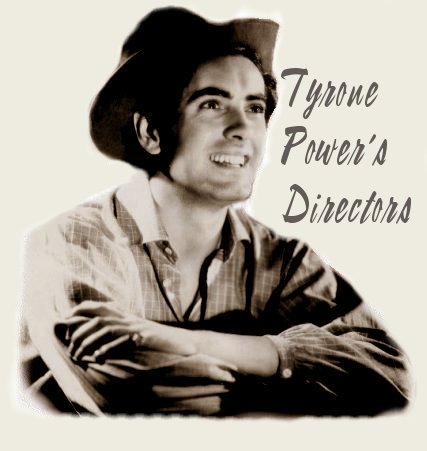
Page 1 of 3
The director is a storyteller -- it is his responsibility to tell the story we start out to tell. That story must be on the motion picture screen -- regardless who writes, photographs, edits, et cetera. All must work closely with the director, or else you will have different interpretations, technically perfect -- and telling nothing. No one person makes the picture -- many people contribute. But all contribute together, with one interpretation. The director must set the pace -- the tempo -- visualize the characters -- create the atmosphere around them. He must create on the motion picture screen what the author puts in a book.
director, Henry King
[Directing: Learn from the Masters, pp. 142-143]

Roy Ward Baker
Born - December 19, 1916,
London, England
Film with Tyrone Power
I'll Never Forget You (1951)
Baker first apprenticed for Gainsborough Films, a British company. During World War 2, he made war films for service personnel. During these years he honed his craft as assistant director. In 1947, he directed his first film, The October Man, starring famed British actor John Mills, with whom he made several other movies. Baker was "one of Britain's most
solid stylists, very aware of shape and shadow and ahead of his time in editing techniques." [The Illustrated Guide to Film Directors, p. 20]
He left England in 1952 for Hollywood to try his hand at directing movies in America. He directed several Hollywood movies but returned to England in 1958. Among his movies were 1950's Morning Departure, 1952's Don't Bother to Knock, 1957's The One That Got Away, 1958's A Night to Remember, 1967's Quatermass and the Pit, and 1968's Anniversary.
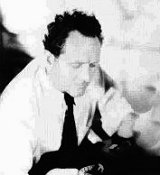
Frank Borzage
Born - April 23, 1893, Salt Lake City, Utah
Died - June 19, 1962, Hollywood, California (cancer)
Film with Tyrone Power
Flirtation Walk (1934)
Borzage began his career in Hollywood in 1912 as an actor. Before turning to
directing in 1916, he had appeared in a number of movies, both as a character
actor and as a leading man. He began directing westerns and melodramas, but
he soon turned to romantic drama. In 1929 he won the Oscar for best director
for Seventh Heaven. He repeated with a win in 1932 for Bad Girl.
Among his other movies are 1928's Street Angel, 1933's Man's Castle, 1936's Desire, 1938's Three Comrades, 1940's Strange Cargo, 1940's The Mortal Storm, 1943's Stage Door Canteen, 1944's Till We Meet Again, 1945's The Spanish Main, 1948's Moonrise, and 1958's China Doll. The last movie that Borzage is credited with directing is 1959's The Big Fisherman; however, with Giuseppe Masini and Edgar G. Ulmer, he co-directed, uncredited, the 1961 Italian film, L' Atlantide.
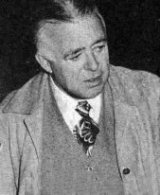
Clarence Brown
Born - May 10, 1890,
Clinton, Massachusetts,
Died - August 17, 1987,
Santa Monica, California
Film with Tyrone Power
The Rains Came (1939)
Clarence Brown directed over fifty movies, beginning with 1920's silent film, The Great Redeemer. He got into the motion picture business as an assistant director to Maurice Tourneur, a pioneer in filmmaking. He directed thirty-six sound movies, all for MGM, with the exception of The Rains Came, which was a 20th Century-Fox film. Brown has commented that "my primary objective in making a film was always to provide entertainment." In commenting about "method actors", he said, "I am not an advocate of the "method" school of acting. In watching these actors perform, I sensed a certain sameness about their performances. Most of them seem to have a high disregard for diction." [Directing: Learn from the Masters, pp. 13-17] Brown received several Oscar nominations:
in 1930 for Anna Christie and for Romance; in 1931
for A Free Soul; in 1944 for The Human Comedy; in 1946
for National Velvet; and in 1947
for The Yearling.
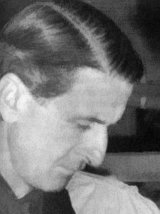
John Cromwell
Born - December 23, 1887,
Toledo, Ohio
Died - September 26, 1979,
Santa Barbara, California (pulmonary embolism)
Film with Tyrone Power
Son of Fury (1942)
Cromwell made his directorial debut in 1929's Close Harmony, when he was past the
age of forty, after having had a successful career as a stage actor. He went on to have a fine career, directing close to fifty movies. He worked for various studios, including Paramount, RKO, Selznick International Pictures, Columbia, and 20th Century-Fox. From 1951 until 1958, he suffered as did many Hollywood actors and filmmakers from blacklisting, caused by the witch hunts of the House Un-American Activities Committee. Though the accusation that he was a Communist was false, he was blacklisted. Unable to find directing work, he returned to the stage, appearing in three Broadway productions during his blacklisting period. In 1958, he did return to directing, with The Goddess. He made a couple more films and then, once more, returned to the stage. Among his films are 1934's Of Human Bondage, 1937's The Prisoner of Zenda, 1940's
Abe Lincoln in Illinois, and 1944's
Since You Went Away.
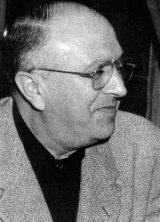
Irving Cummings
Born - October 9, 1888,
New York, New York
Died - April 18, 1959,
Los Angeles, California (heart)
Films with Tyrone Power
Girls' Dormitory (1936)
Jesse James (1939) (uncredited assistant director)
Cummings began his film career as a stage actor in a company headed by Lillian Russell, about whom he would later make a biographical drama based on her life. For a few years, he was a successful leading man. As his appeal faded by the early 1920's, he decided to try his hand at directing. In 1922, he began his directing career with a couple film shorts. Soon, he was doing full-length movies. In 1930, he was nominated for an Oscar for In Old Arizona. Cummings had his best stint as a director at 20th Century-Fox, from 1935 to 1945, where
he made movies that provided colorful, light entertainment. By the end of World War II, however, tastes had changed, and that type of movie became less popular. He only directed one post-war movie, a disappointing RKO movie, 1951's Double Dynamite, which starred Jane Russell, Groucho Marx, and Frank Sinatra.
Among the other films he directed during his most productive period are 1936's
Poor Little Rich Girl, 1939's The Story of Alexander Graham Bell,
1940's Down Argentine Way, and 1942's
Springtime in the Rockies.

Allan Dwan (1885-1981)
Born - April 3. 1885,
Toronto, Ontario, Canada
Died - December 28, 1981,
Woodland Hills, California (heart)
Film with Tyrone Power
Suez (1938)
If all Allan Dwan's movies, including the silent ones and short subjects were listed, his
directorial filmography would total somewhere around 400 films. He began in 1911, and he churned out an incredible number of films during those early years. He loved filmmaking, never tiring of it, and he enjoyed a wide range of genres, including action, westerns, musicals, comedy, and drama.
In speaking of whether a director should adhere to the script, Dwan explained that an actor should have flexibility in his lines and that, if he's a good actor, his thoughts should be respected. He went on to say, "That's his art -- his profession -- he's perfected it. He knows more about acting than you'll ever know." [Directing: Learn from the Masters, p. 57]. Dwan's most commercially successful films were Suez and two Shirley
Temple movies, Heidi and Rebecca of Sunnybrook Farm. Among his other movies are 1929's The Iron Mask, 1949's Sands of Iwo Jima, 1954's, Cattle Queen of Montana, and 1957's The River's Edge.

John Ford
Born - February 1, 1894,
Cape Elizabeth, Maine
Died - August 31, 1973,
Palm Desert, California (stomach cancer)
Films with Tyrone Power
The Long Gray Line (1955)
The Rising of the Moon (1957)
John Ford was one of the best-known directors in Hollywood, considered by many to be the
greatest American director. His films were steeped in sentimentality and themes of "honor, patriotism, and family". [The Illustrated Who's Who of Directors, p.150]. He took home
the Oscar for best director several times:
in 1936 for The Informer,
in 1941 for The Grapes of Wrath , in 1942 for How Green Was My Valley, and
in 1953 for The Quiet Man. Many of his movies were westerns, often starring
John Wayne. Among his movies are 1939's Stagecoach (which boosted John Wayne out of B movies), 1939's Drums Along the Mohawk, 1952's What Price Glory, and 1961's Two Rode Together .
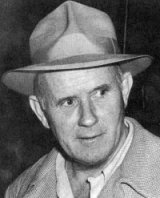
Tay Garnett
Born - June 13, 1894,
Los Angeles, California
Died - October 3, 1977,
Sawtelle, California (leukemia)
Film with Tyrone Power
Love Is News (1937)
Tay Garnett began his film career as a screenwriter. In 1920, he began working for Hal Roach as a gag writer. By 1928, he had drifted into directing, which lasted well into the 1970's. He made movies in various genres, but he has said that he felt his strength was in comedy.
With respect to whether an actor should be required to adhere strictly to the script, Garnett commented, "That an actor be required to adhere meticulously to the script -- lines and business -- is, in my book, ridiculous. Unless we are doing Shakespeare, which at this point -- appears most unlikely." [Directing: Learn from the Masters, p. 100] Among his movies are 1932's One Way Passage, 1943's Bataan, 1946's The Postman Always Rings Twice, and 1949's A Connecticut Yankee in King Arthur's Court .

Edmund Goulding
Born - March 20, 1891,
Feltham, Middlesex, England, UK
Died - December 24, 1959,
Los Angeles, California (suicide)
Films with Tyrone Power
The Razor's Edge (1946)
Nightmare Alley (1947)
Goulding was a stage actor in London, making his debut at the age of twelve. He became a screenplay writer and director as a young man. By 1915, he was in New York, appearing on stage and acting in a few silent films. World War I interrupted his career, as he spent
three years in the British Army. He returned to the states in 1919, and began again as
a screenplay writer. He wrote for over 30 movies during the period 1919-1925. One of the stories that he wrote was Fury, which was made into a movie in 1923. The movie starred Tyrone's dad, Tyrone Power Sr., and was directed by Tyrone's good friend and director, Henry King. Goulding's Hollywood directing career began in 1925 when he directed the movie, Sun-Up, for MGM. He directed about forty films, from 1925-1958. Among them were 1932's Grand Hotel, 1935's A Night at the Opera , 1939's Dark Victory , and 1940's 'Til We Meet Again . Goulding was known for being able to coax fine performances from his actors. It has been said that he "chose to remain discreetly in the background while the actors in his films gave memorable performances under his confident direction." [Great Movie Directors, p. 96]
